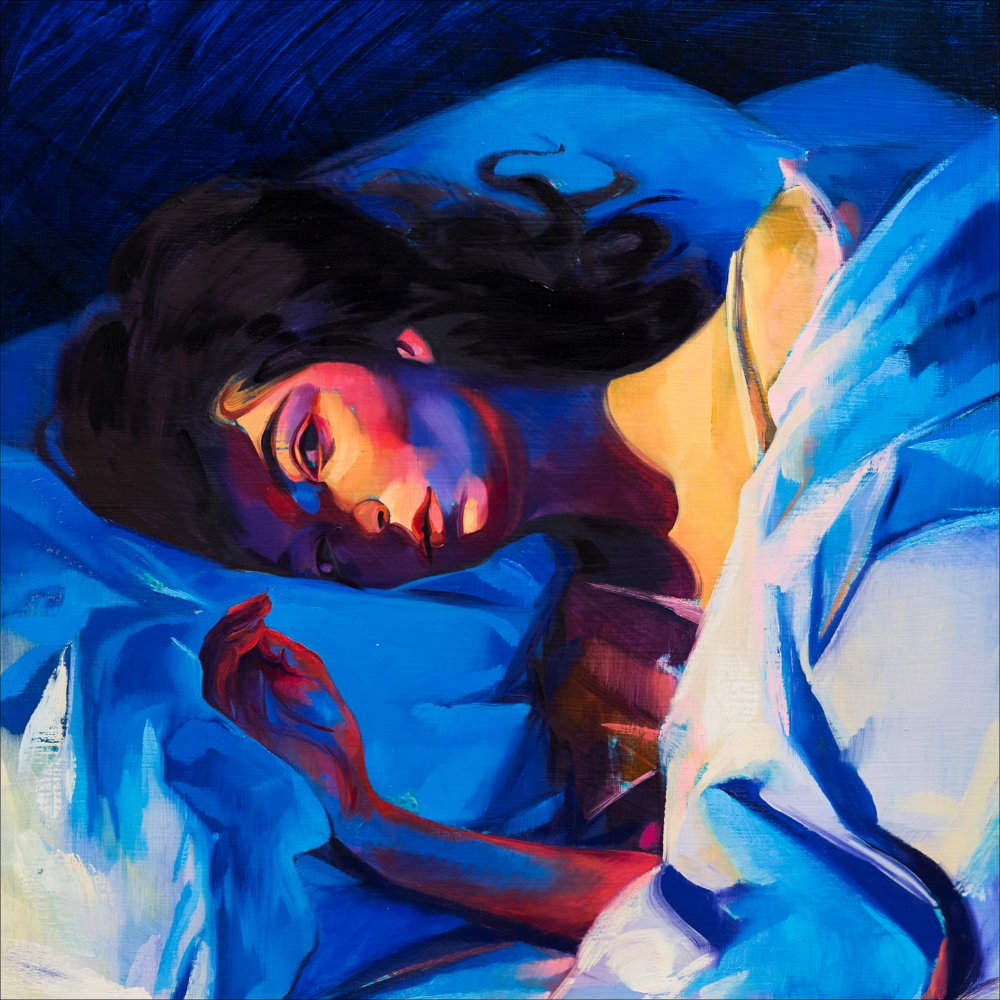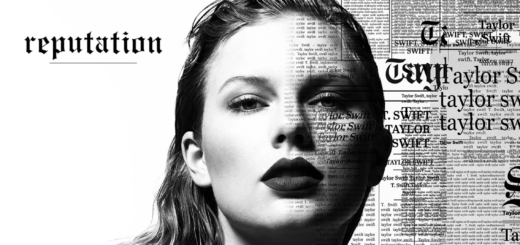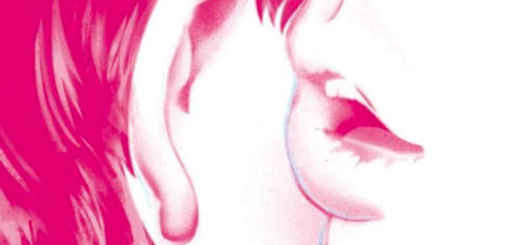MELODRAMA by Lorde

Genre: Synthpop, Art Pop
Favorite Tracks: “Green Light,” “Homemade Dynamite,” “The Louvre,” “Liability,” “Sober II (Melodrama),” “Supercut,” “Perfect Places”
Propelled by gin and tonic and a pair of sparkly, hot pink boots, I stepped into a house party flanked by my girl gang, feeling uncharacteristically sociable in light of a few emotionally turbulent weeks. My friends and I baltered between dancefloor bangers of the mid-aughts reverberating against the walls of the house, and the patio flushed with boozy-eyed college students flirting and conversing beneath lemon trees and the smoke of bummed cigarettes. At one moment I was dancing, joyously, carelessly; another, I was mouth-to-mouth with a tall dude in a shady crook of the backyard; the next, I had turned a corner and run into a recent ex-boyfriend, who strategically shifted his posturing in order to avoid eye contact with me. As if written by the thrust of a hormonal floodgate, the night shoved me winded through elation, desire, and anguish within mere hours, and left me in the red-glowing light of a bathroom, crying into a friend’s bosom. Staring down my reflection, I tried to reset, tried to dissociate back into the fugue state that separated the unfettered girl I could be at a party from the painfully material reality that taunted me in the mirror. Collecting myself, I finished out the night, not quite on my original high, but riding on a buzz nonetheless, and, on the Uber ride home, chalked it all up to being part of the healing process before crashing, fully-clothed, back into my bed.
Not unlike a float in a sensory deprivation tank, Lorde’s long-awaited sophomore release triggered and enveloped me in this memory, front-to-back. The story, though trite, remains unique only to youth—that dramatic ennui and recklessness between naïveté and wisdom, not quite a kid, and not quite an adult. But, what makes it exciting in the first-person is the newness of it all, and to experience those affairs for the first time is to feel one’s feelings with no less than the enormous sensationalism that so aptly titles Lorde’s album: MELODRAMA.
Four years after PURE HEROINE, the debut that sold a million copies in only five months, Ella Yelich-O’Connor shot into a stardom that has so far earned her two Grammys, oversight authority for the collation of the MOCKINGJAY movie soundtrack, and David Bowie’s personal blessing. Just like the teenage limbo she markedly sings about, her celebrity lies somewhere in between the panopticon of Katy Perry and the mysterious withdrawal of Frank Ocean. Nevertheless, all ends of the popular spectrum inherit their own mountain of pressure, not only to release music now, but also to release music that’s good. In a haste to heed these demands, they drown in collaborators until the work is armed less like a mussel and more like an octopus; Lorde, on the other hand, restricts MELODRAMA’s associates to Jack Antonoff of Bleachers and sparse production contributions from people like Malay, Frank Dukes, and Flume. Where many pop artists fail to grow and mutate while also appealing to fans, Lorde proves that such tasks can only be successful by taking the time to be an observer and prioritizing the privacy needed to listen to your own self, stepping out of the limelight and bopping between her home in New Zealand and secluded recording studios in New York following a devastating breakup.
PURE HEROINE is a solid testimony to Lorde’s hyper-awareness of both her surroundings and of herself, reflecting on themes of social anxieties, teenage boredom, hedonism, and budding romance—an impeccably mature insight only matched in eloquence by pop superiors two or three times her own age. At 16, PURE HEROINE illustrated a youthful, emotional depth too often unheard in the pop music industry, typically saved for the likes of adolescent indie songwriters like SOAK or Birdy. By now, four years is an entire fifth of Ella’s lifetime; to expect her to have anything less than a soap opera to share would simply be sacrilege. Luckily, her respite from the spotlight has since given her a point of view, again, as the audience instead of the spectacle, to create MELODRAMA: a 40-minute epic chronicling a night not unlike my own memory, not unlike the memories through which people our age thrive and suffer.
Sustained by as much grief and fury as determination, “Green Light” marks the beginning of that night whose end goal is to dance out the heartbreak. Rage gilded by house piano, power chords, and a killer key change at the pre-chorus eventually pushes Lorde’s husky snarl into an explosively radiant mantra to fuel her escapism into the next morning and on to the future: “Oh, I wish that I could get my things and just let go / I’m waiting for it, that green light—I want it.” A party may be her only quick reprieve from the feelings that keep holding her back.
Though MELODRAMA is evidence of Ella’s shift into experientialism since PURE HEROINE, the observer-participant dichotomy in this album nails her as an honest and cognizant narrator, even in the mess of tears, cocktails, and dancing. Singing in a rap-like syncopation, she sways with potential lovers and sucks down post-tequila shot limes on “Sober.” Vocal chirps and sweeping horns ornament a backbone straight from The XX, and Lorde detaches from the present moment during every chorus to ask, “But what will we do when we’re sober?” Soon enough, the liquor hits just right on “Homemade Dynamite” and drunkenly seduces her prospect into a wonky beat and vocalizations that tick like a time bomb, though not enough to blur the foresight of a car ride with a drunk driver (“We’ll end up painted on the road / Red and chrome / All the broken glass sparkling”). “The Louvre” serves as the peak of the night’s glossy, mind-numbing euphoria, beginning with a humble guitar strum, a heavy drum spank adding in, and then escalation into an exultant reverse beat-drop, like Sirens echoing inside a fishbowl beneath Lorde’s coolly-spoken chant (“Broadcast the boom, boom, boom / And make ‘em all dance to it”). The song’s fevered synthpop produces a lovesick nostalgia once perfected by When In Rome’s “The Promise,” and fades out into a meditative guitar riff not unfamiliar to the end credits of a John Hughes film.
Thus demarcates the beginning of the comedown—if the first third of MELODRAMA is party bliss (a grand entrance, schmoozing, dancing, philandering), then the second third is the gross identity crisis in the bathroom (who invited her ex?) and the gradual filter-out of partygoers. While it has been a trend across all her work, Lorde’s vocal chops are notably flexed amongst the middle few tracks. As someone who doesn’t play an instrument, Lorde is especially prone to swing, throw, hiccup, hum, and screw her voice as its own piece of futuristic machinery, whether it buoys a rich production of seedy hip hop beats, melancholic strings, or simple piano accompaniment. From the vulnerable softness of “Liability” and the disgusted lacuna of “Sober II (Melodrama),” to the charmolypi and sarcasm of “Hard Feelings/Loveless” and the biting Kate Bush-y triumph of “Writer In The Dark”—Lorde’s niche as a pop musician is undoubtedly the fearless expressiveness of the voice she sets sail atop melodies and songwriting that only a synesthete could conjure.
Deflated balloons and empty champagne glasses now decorate the house, perhaps a few tired bodies crashed on the floor, if not stumbling out the door and into the daybreak. The sun rises on “Supercut,” a stadium-worthy confessional about idealizing a relationship clearly in collapse, imagining events panning out differently than they have. The song’s refrain (“In my head, I do everything right / When you call, I’ll forgive and not fight / Because ours are the moments I play in the dark / We were wild and fluorescent, come home to my heart”), though crisp and focused at first, pulses until the heartache muffles—perhaps a nod both to the groggy, renewing sensation of the day-after sunrise, and the eventual dull of a broken heart.
The lilting ballad “Liability (Reprise)” finally reconciles the anesthetizing, halcyon fantasy of parties with the messiness of emerging adulthood, and serves as the concluding conduit for MELODRAMA’s closing anthem, “Perfect Places.” The final track realizes that those very parties are mere nepenthes for loss and loneliness (“All of our heroes fading / Now I can’t stand to be alone / Let’s go to perfect places”), a platitude any grown-up could serve as a matter of fact, but still a lesson that doesn’t get learned until you find yourself hungover in solitude. But that’s the beauty and tragedy of MELODRAMA, the young and dumb experiences that initiate us into maturation, the electrifying memories we have since reduced to scintilla. Go big, or go home.
Verdict: Recommend




1 Response
[…] not mutually exclusive characteristics—this is becoming more and more apparent. From Lorde’s MELODRAMA to the film LADY BIRD, coming-of-age stories feel more relevant than ever as increasingly blatant […]